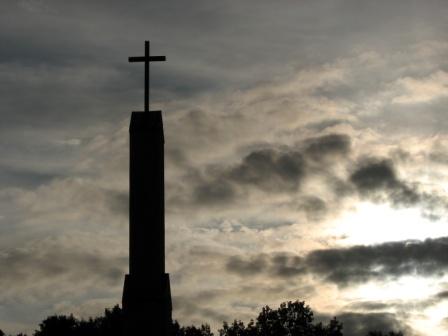
Dr Charlene van der Walt returned to Grahamstown recently to give a presentation that looked closely at the Dutch Reformed Church's attitude to homosexuality as part of the OUTRhodes LGBTI Pride Week.
Dr Van der Walt was, until a year ago, a minister in the local NG Kerk; she is now a full-time academic doing postdoctoral research in theology at Stellenbosch University. Her talk was entitled: “Sexuality and Spirituality - exploring the landscape beyond the immediate deadlock”.
The presentation was both searingly honest and deeply personal. Herself a lesbian, she opened by stating many of the other elements that make her the person she is. She enjoys spending time with family and friends, she loves to eat good food. She is passionate about helping others. It is sadly true however that because of her sexuality, one aspect of herself among many others, has led to intense difficulties for her in her chosen profession.
Her lived experience in full-time ministry revealed two opposing camps on homosexuality within the Dutch Reformed Church, both using the Bible to argue their case. The conservative camp uses the so-called 'six bullet texts' to justify their refusal to engage with the issue. Liberal voices argue for a greater contextual understanding of these and other verses, and promote a more compassionate and contemplative study of the Bible.
The Church itself has taken some steps towards reconciliation with its homosexual members. In 1999 the Western Cape Synod confessed its guilt over its conduct towards gay people, and instituted a process of dialogue.
In 2007 the General Synod recognised that homosexual members of the church had the right to practice their faith and indeed to work within ministry. However it stopped short of offering tangible equality. Marriage, for example, was firmly announced to be a state which could exist only between a man and a woman.
Dr Van der Walt came to see the reforms offered in 2007 as a “mirage in the desert”, another instance of the old saying 'Hate the sin, love the sinner.' Homosexuals were to be tolerated, but not recognised as having equal rights to heterosexual church members.
This paradox, and the still deeply divided attitudes among the members of the church, led to Dr Van der Walt paying a painful price for her belief in the importance of creating a space where “people could meet God”. Her time at the University of Stellenbosch, has revitalised her sense of self and sense of place in the world.
She was eager to share some of the methods, which have helped her over the past year, with the members of the audience. She introduced the concept of Queer Theory, which functions within what is known as Liberation Theology, and is based largely on the work of Foucault. Queer theory challenges notions of heteronormativity, and takes seriously the fluidity of human sexuality, giving Dr Van der Walt the language needed to express her dawning realisation that the Church promulgates male heteronormativity, and that this should be challenged.
Another vital tool was Feminism and Feminist Theology, allowing for recognition of how language can uphold power patterns. Critical Biblical Scholarship is an academic method which is used to present an alternative to the simplistic use of scripture; a challenge to the 'God says so' mentality still prevalent in the world today.
Critical Biblical Scholarship considers the world behind the text, the social setting, the writer and the expected audience. Twenty-first century men and women are not the Bible's intended audience. By considering our role as interpreter, and engaging with others, we can, says Dr Van der Walt, gain ongoing understanding from this ancient text.
Leading on from this new way of reading and interpreting the Bible, van der Walt discovered the importance of leaving space for the unknown, creating, in religious terms, a space for the Spirit to fill. And, in an important message, she reminded us of the beauty of prophetic vision, that God calls us to be a community of who we are, and, in doing so, to let God's love flow through us.
Story by Jeannie Mckeowin
